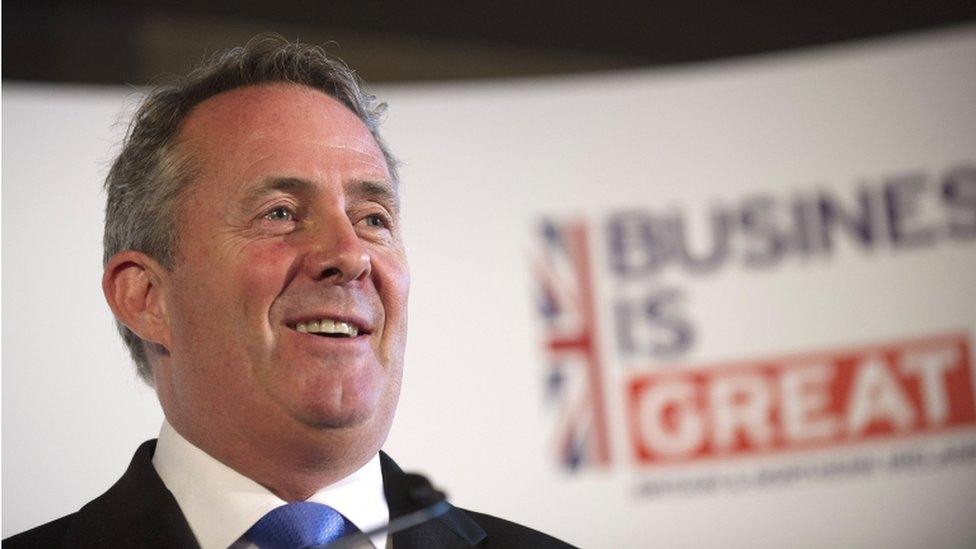The turbulence of Brexit
- Published
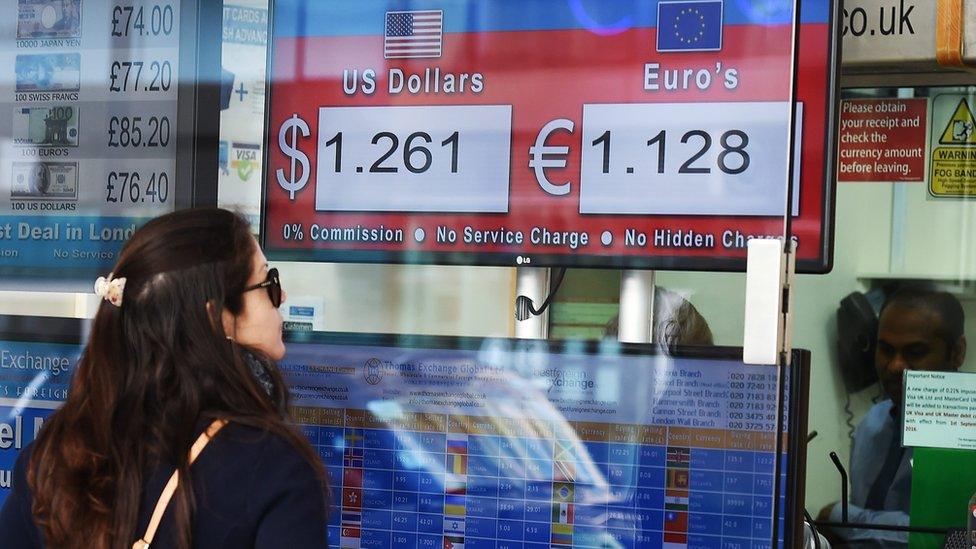
The last week has underlined the basic reality of British politics - Brexit will define Theresa May's premiership.
Almost certainly the prime minister knew that, but this week the currency markets confirmed it. Brexit talk can put the pound under pressure.
The strong hints that curtailing immigration is a greater political priority than preserving access to the EU's single market sent sterling to a 31-year-low against the dollar.
Theresa May's new-found evangelical fervour for Brexit and Global Britain cannot disguise the fundamental dilemma that the UK faces when it triggers Article 50 next March and the negotiations to leave the EU begin.
The government wants to control EU migration while retaining as much access as possible to the single market. On almost a daily basis European leaders say that the two aims are incompatible.
The drumbeat is incessant. Only this week, German Chancellor Angela Merkel said again that "full access to the single market is linked and inseparably bound up with the acceptance of the four fundamental freedoms - also including the freedom of movement for people".
Mrs May's stance was equally firm: "We are not leaving the EU only to give up control of immigration all over again."
Many interpreted this as the UK being willing to sacrifice access to the single market in order to deliver on reducing immigration. The prime minister, however, was quick to insist she still wanted to give "British companies maximum freedom to trade with and operate within the single market".
There will be many twists and turns but it is possible to sketch out the most likely scenarios.
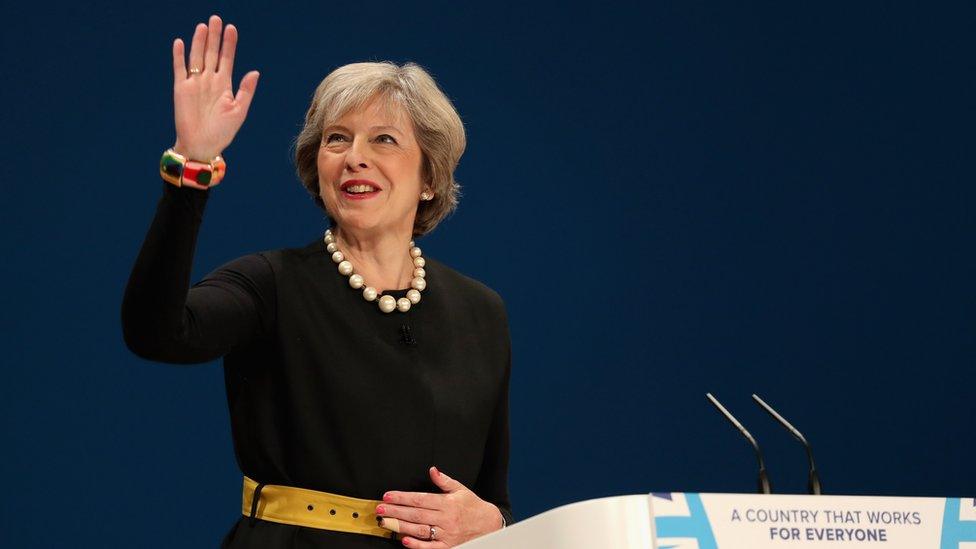
Theresa May has taken a firm stance on immigration
The UK should be able to draw up a divorce agreement in order to leave the EU by 2019 but it is more than likely that the terms of the future trading relationship will not have been settled.
So the UK will argue for a transitional period - say up to five years - in order to negotiate a free trade agreement. During that period the UK would still trade and operate within the single market and accept EU rules.
It would give some certainty to business although a timetable of five years may be optimistic. The Canadians took seven years to negotiate their free trade deal and it still hasn't been ratified.
The politics of a transitional agreement would be difficult to sell. The European Parliament - and some European states, like France - might see it as too much of a concession.
At the very least they would demand continued contributions to the EU budget or a one-off payment. The problem for Theresa May is that when she comes to election time in 2020, Brexit may not feel like Brexit.
If a transitional deal was to prove impossible, there is another scenario that carries far greater risks for the British economy. The UK leaves the EU without a trade deal and has to fall back on the trading rules of the World Trade Organization (WTO) with the prospect of tariffs and tariff barriers.
The tariffs on cars are 10%. Negotiating terms with the WTO would not be straightforward. The financial services sector would face strong headwinds as it is not covered by WTO rules.
The big political question for the UK government is how big a fight it is prepared to put up to stay in the single market and the customs union.
There is an argument, stated by some senior British officials, that the current hard line coming from Europe's capitals is for political show. Sooner or later European self-interest will intrude.
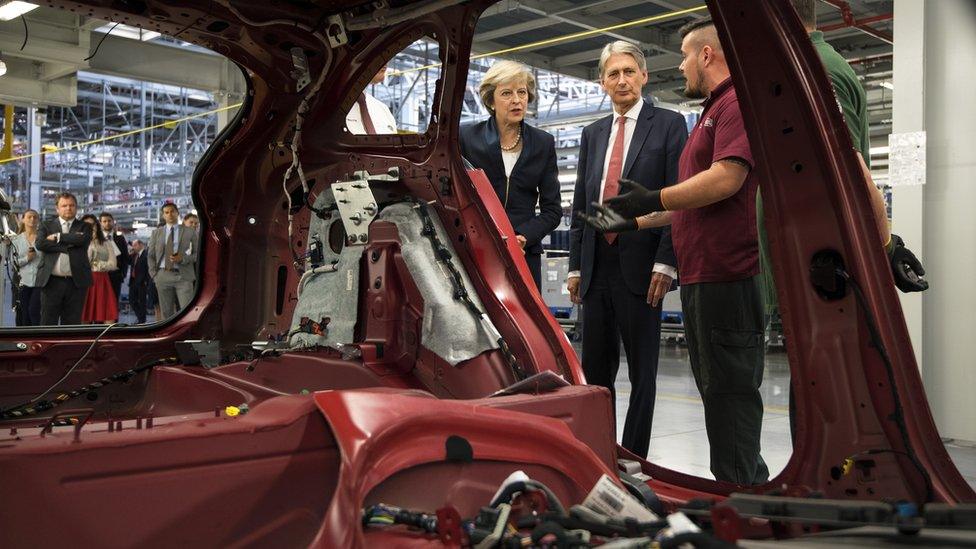
Agreement on industries like car manufacturing will be key to a successful Brexit
Germany exports 800,000 cars each year to the UK and the country's car companies have huge investments in Britain. The head of the German automotive industries has said that "punishing Britain makes no sense". The EU sells far more to the UK than the other way round.
Undoubtedly there will be pressure from European businesses to strike a sensible trade deal but that will not necessarily trump the politics. On Thursday, Angela Merkel insisted she would not be put under pressure from European industry associations.
British ministers also believe that their hand will be strengthened in negotiations by the resilience of the UK economy.
The UK is witnessing growth in services and manufacturing, while the eurozone economy is slowing - another reason, it is said, for the EU political establishment to reach a compromise with Europe's second-largest economy.
One compromise being considered is striking deals to cover specific sectors if full access to the single market was not possible.
Take the UK car industry, for example. It employs, when supply companies are included, nearly 800,000 people and it accounts for 4% of GDP. Could a special deal be done for cars? Without it, would some of the big manufacturers move to continental Europe?
Chancellor Philip Hammond has spoken of addressing the "specific needs" of the financial sector. Could a deal be done to extend what is called "passporting" - allowing financial companies and banks to sell their services across the EU?
It would be a messy solution and what would the EU demand in exchange for such concessions? A large contribution to the EU budget at the very least. The UK would have to pay for access.
European politics is not set in stone but considerable sections of official Europe are not looking for an easy divorce. For political reasons, they need to demonstrate to their own Eurosceptic voters that the UK is hurting.
The French President Francois Hollande is all for taking a tough line. "There must be a threat, there must be a risk, there must be a price," he said on Thursday. "Otherwise we will be in negotiations that will not end well."
This is also a widely-held view in the European Parliament and that body will have to approve any deal done under Article 50 as well as any free trade deal.
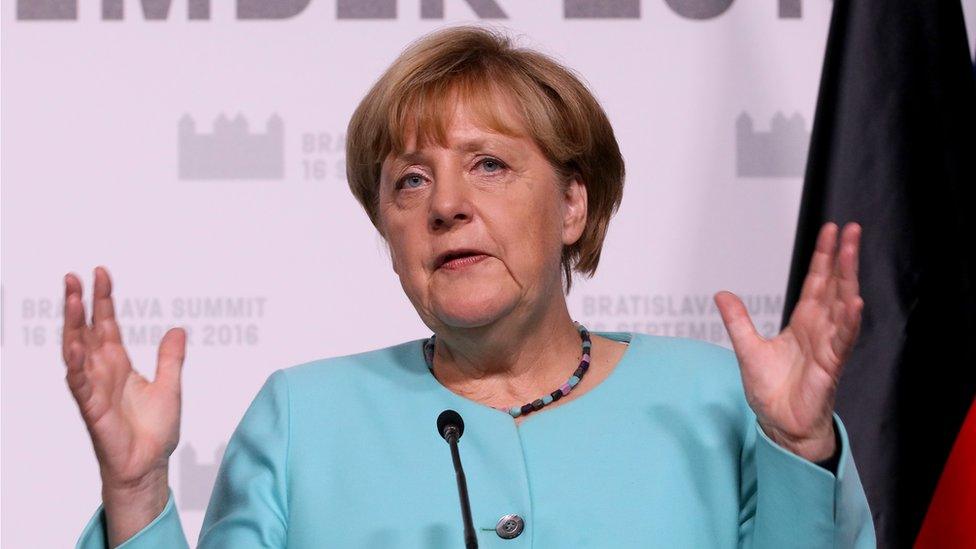
German Chancellor Angela Merkel is seen to be taking a pragmatic approach to Brexit
But in the midst of much hard-line comment there was also a hint of realism from Mrs Merkel.
She defined the key question as: "How much access to the single market does Great Britain get and, in a reciprocal way, how much access to the British market do we get? And how ready are we to link this access politically so that the four freedoms are defended?"
Those questions offer the prospect of a meaningful negotiation.
There was a further indication this week of just how sensitive the negotiations will be. The suggestion from the home secretary that companies may have to declare how many foreigners they employ was widely reported across the EU, with much of the commentary hostile.
It led the chancellor to say that there would have to be "give and take", insisting that skilled people from the EU would still be able to work in the UK.
The government knows leaving the EU will not be smooth. It has already warned about "bumps" in the road. The biggest fear is of an early rebuff that when, next year, Britain sets out what it wants from the EU, the other 27 members dismiss it, so unnerving financial markets and opening up new uncertainties.
Within the government there is a fault-line between the pragmatists and the Brexit believers. The pragmatists are wary of what leaving the single market will do to investment, the wider economy and the City of London. The believers are focused on new trading opportunities away from the single market and the EU's customs union.
Managing those tensions will take considerable political skill but turbulence is inescapable.
- Published5 October 2016
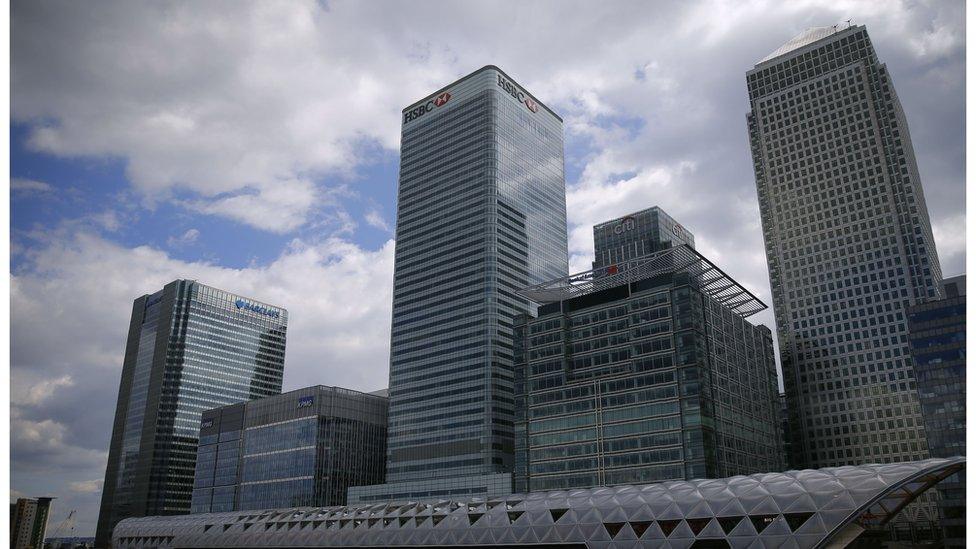
- Published5 October 2016
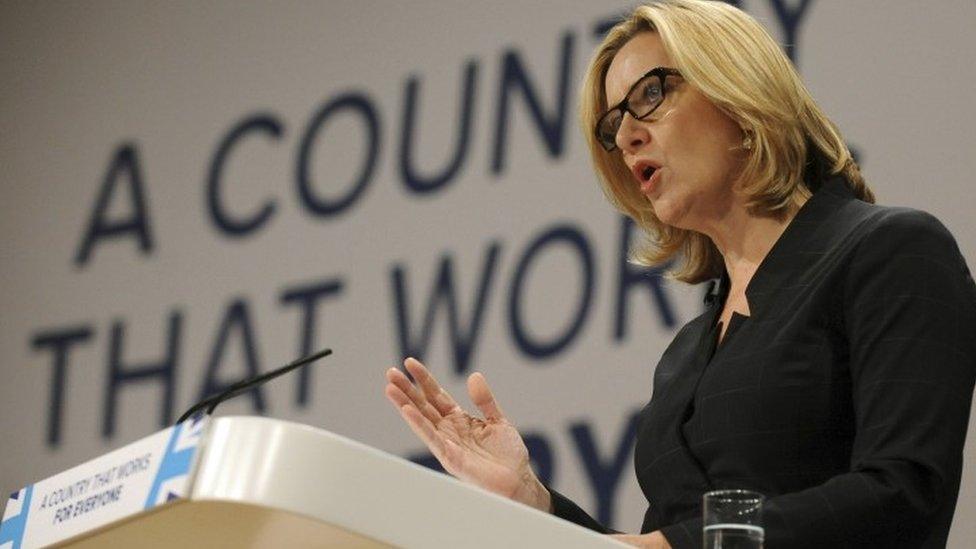
- Published4 October 2016
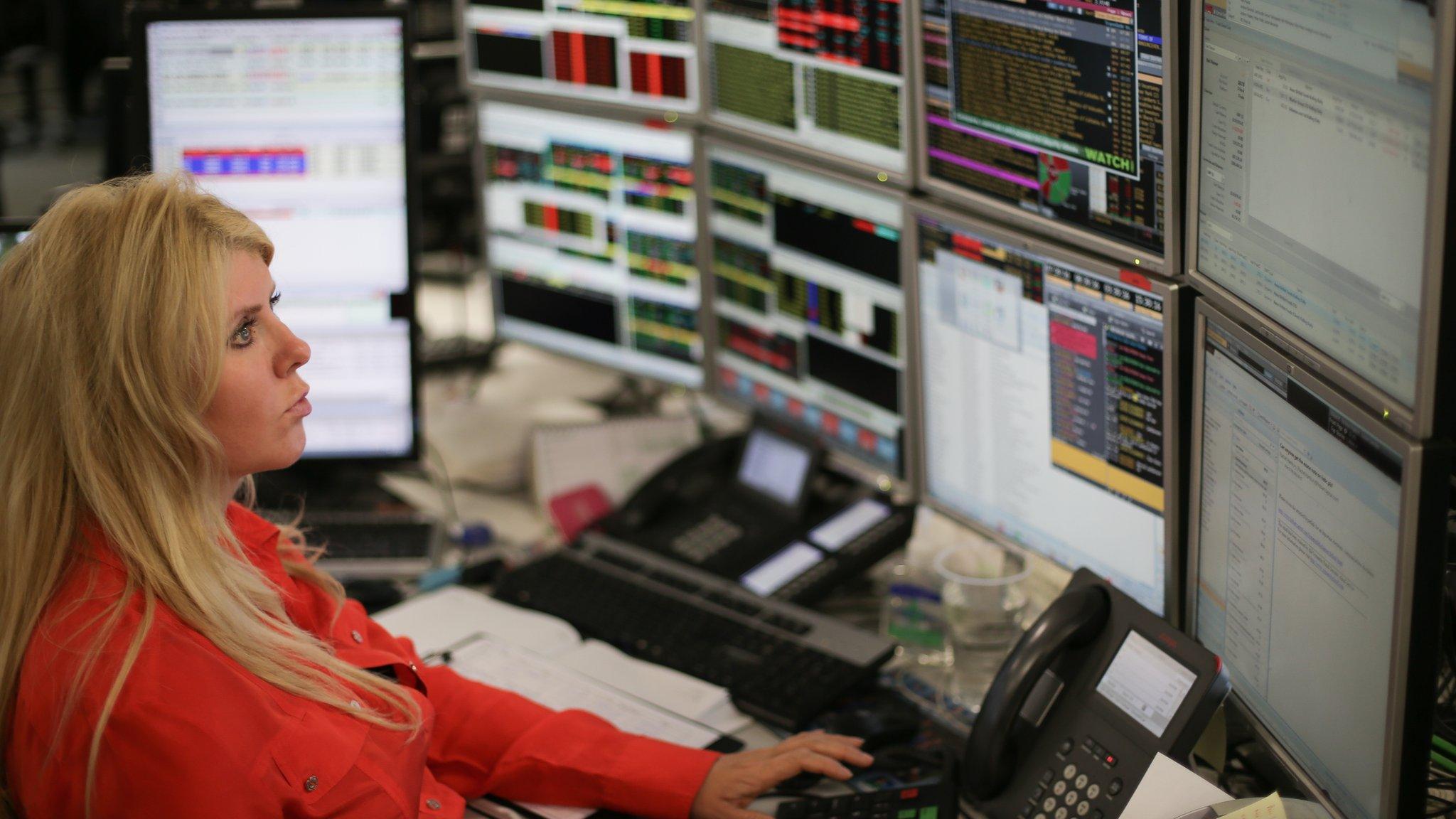
- Published4 October 2016
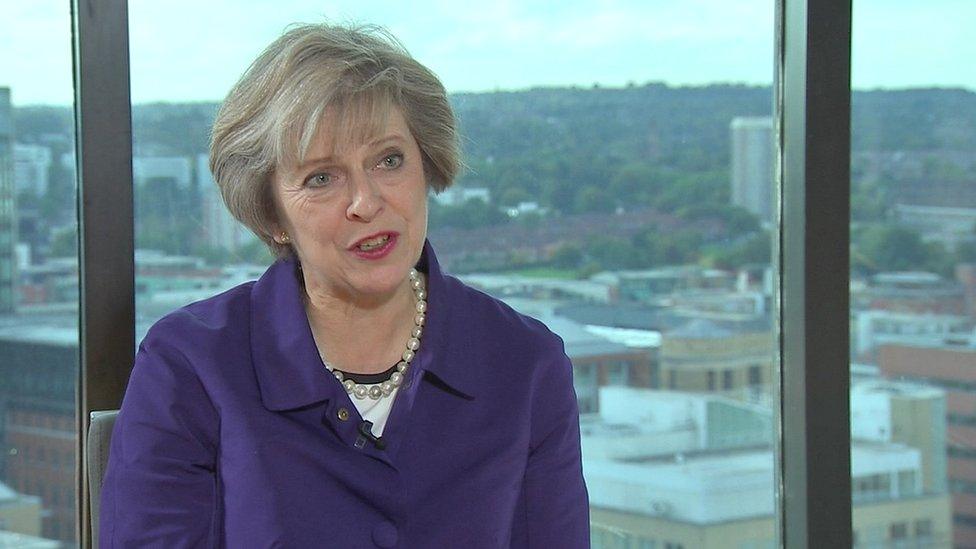
- Published2 October 2016
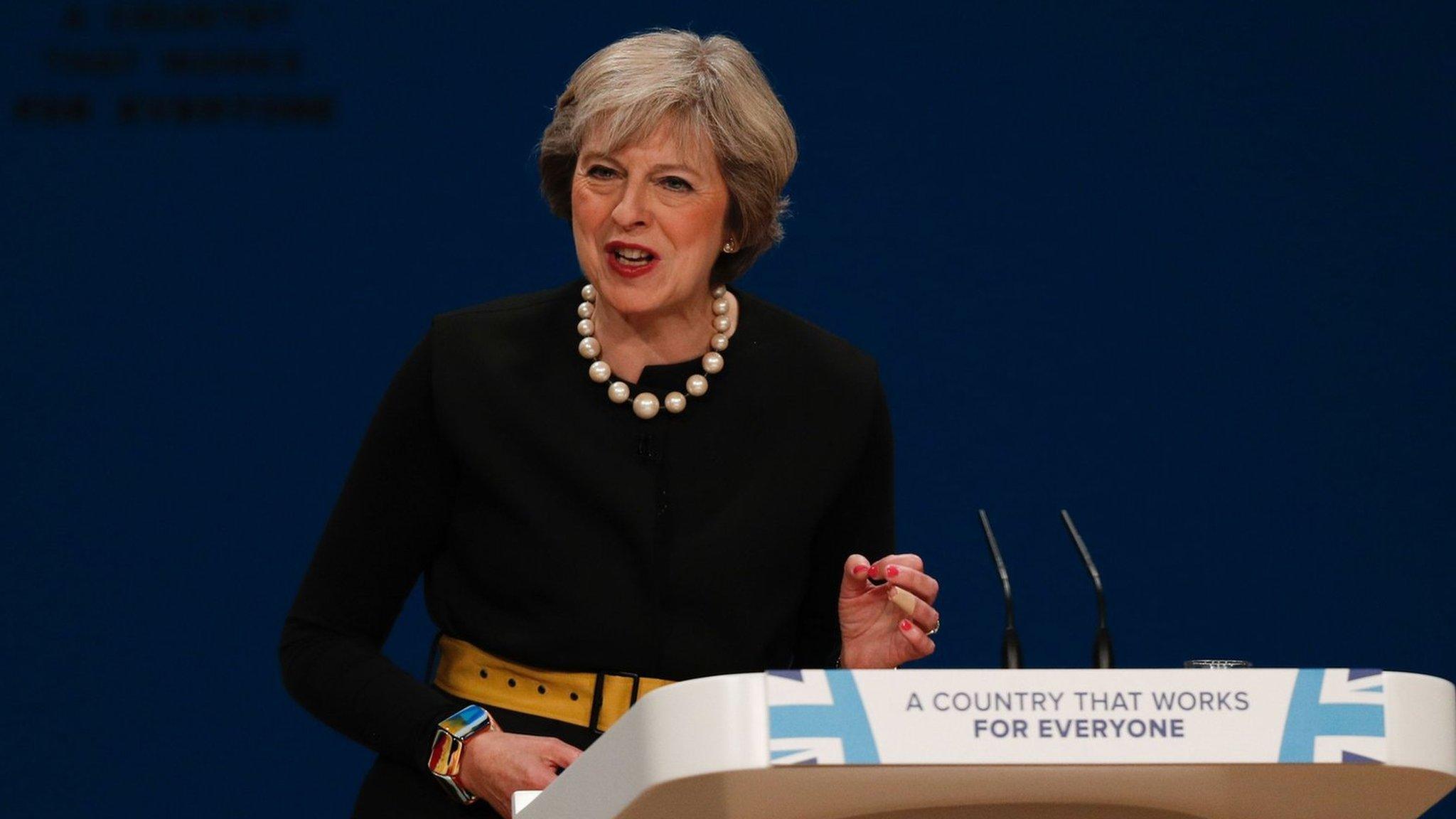
- Published29 September 2016
